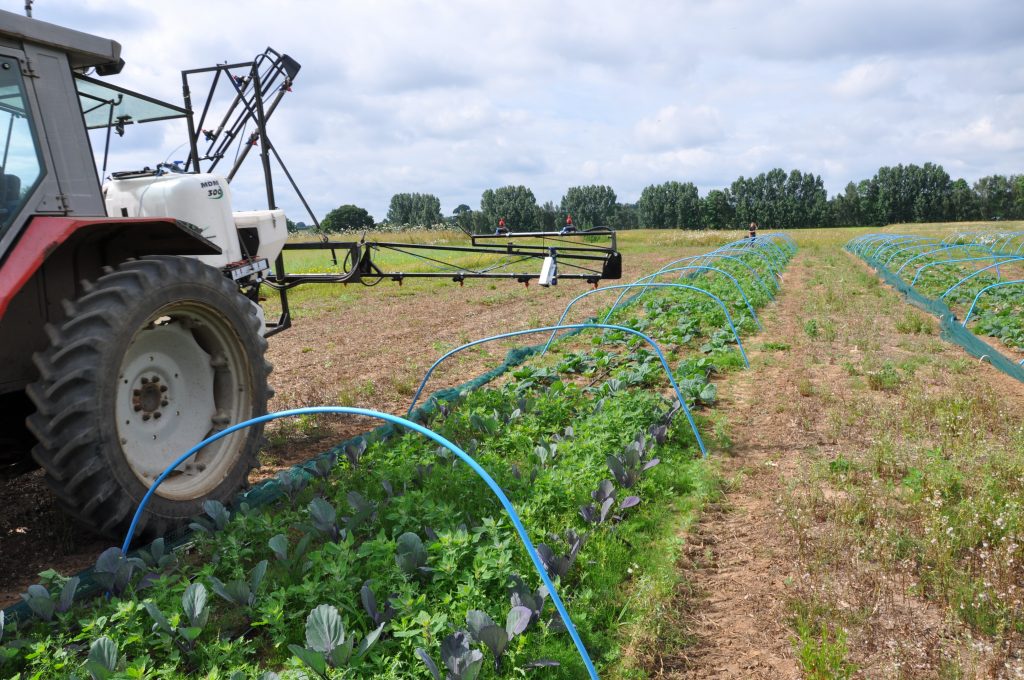The future of targeted weed control
22nd November 2016
A research project part-funded by AHDB Horticulture, ‘eyeSpot’, is driving innovation in weed control and aims to reduce herbicide inputs by up to 95%. Experts at University of Reading, Precision Farming
A research project part-funded by AHDB Horticulture, ‘eyeSpot’, is driving innovation in weed control and aims to reduce herbicide inputs by up to 95%.
Experts at University of Reading, Precision Farming Robotics Ltd., Concurrent Solutions llc and Knight Farm Machinery Ltd. are developing the use of a cutting-edge automated spot herbicide ejector, which will ‘point and shoot’ metered droplets to individual leaves of unwanted plants in row crops. The ejector will use an innovative imaging system to distinguish weeds in field vegetable crops and will evaluate the dose of droplets required to kill weeds at different growth stages. Herbicide droplets will then be accurately targeted to the leaves of the unwanted plants. The concept is “no herbicide applied to the crop; none to the soil; only to the weeds”.
The project has been developed in response to concerns about the loss of herbicides and pressure to target pesticides better and in lower doses. The technology will precisely apply herbicide only to the weeds in such a way as to eliminate drift and spatter, while minimising the likelihood of run-off to soil and non-target organisms, including the crop. By applying droplets of a systemic, non-selective herbicide to individual leaves, it represents a paradigm shift in weed technology, achieving selective weed control by engineering rather than chemistry.
Once commercialised, the system could reduce, by up to 95%, herbicide inputs per unit land area. Benefits to growers are expected to be much greater than just economic, as labour and energy requirements are expected to be significantly lower than for mechanical weed control.
Additionally, the approach aims to address environmental issues by cutting energy inputs and soil moisture loss by reducing need for mechanical weed control.
Field trials with savoy cabbages took place in summer 2016. For proof of concept, manually applied droplets of glyphosate achieved 92% weed control and significantly higher yields than the conventionally applied pre-emergence herbicide, pendimethalin. Most importantly, yields were not significantly lower than those in hand-weeded trial areas and amounts of herbicide applied per unit land area (equivalent to 83g glyphosate per hectare) were 94% lower than for the pendimethalin.
Commenting on the findings so far, Dr Alistair Murdoch, University of Reading, who is leading the research project, said, “This is a pioneering project, as we are exploring a combined engineering and chemical solution to weed control in field vegetables. By accurately targeting leaf-specific droplet applications, it is the ultimate in precision agriculture. The importance of the successful findings of the project cannot be over-stressed and it is, therefore, particularly important that systemic, broad-spectrum active ingredients such as glyphosate remain available to farmers and growers.”
An automated vision-guided droplet application system should be ready for preliminary field trials in 2018.

